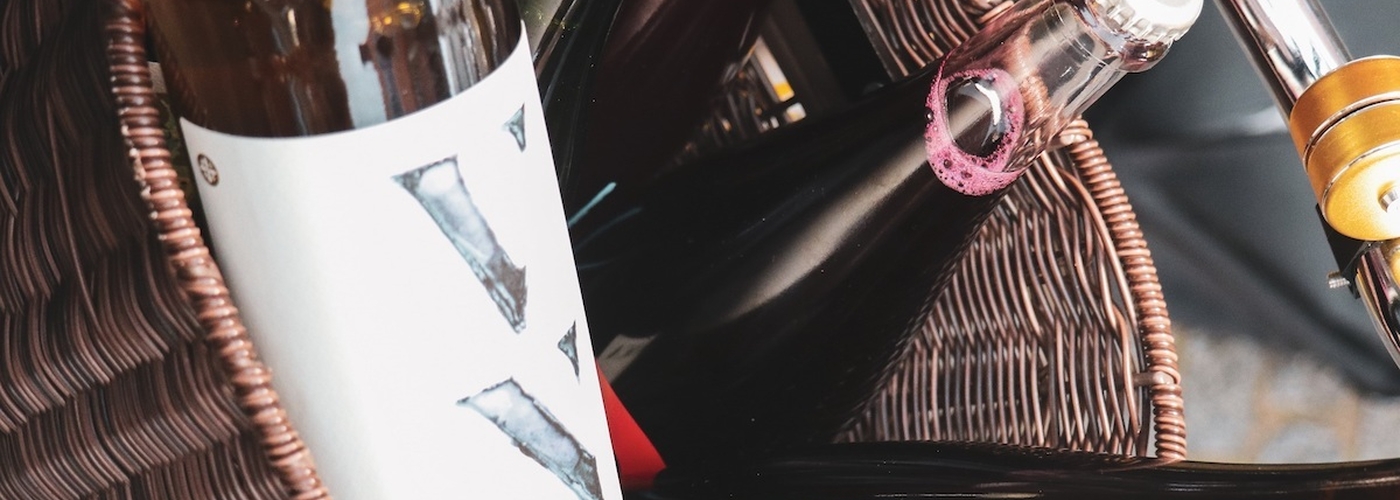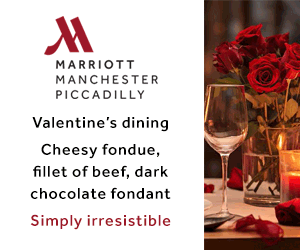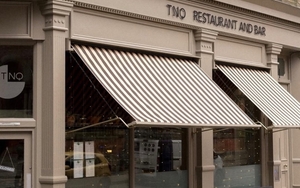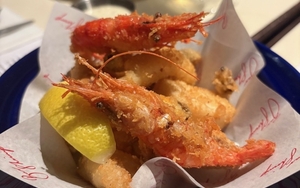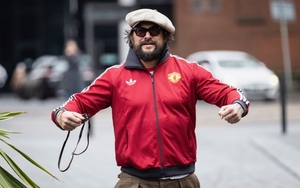Neil Sowerby takes one for the team on part two of his tour of natural wine bars
You can bet your last bung the bottles Tory apparatchiks were smuggling into Downing Street didn’t qualify as "natural wine". Supermarkets may have caught up on "craft beer" and are packing the chill counters with dubious plant-based convenience foods, but minimum intervention vino from small scale producers? Not on their radar.
Look elsewhere, though, and wine produced without the aid of herbicides and pesticides, with less manipulation in the fermentation process, is certainly no fleeting trend. Now accounting for an estimated one per cent of wine production worldwide, the natural stuff tallies with our yearning for artisanal purity and a return to traditional basics in the teeth of environmental degradation.
I think that there is a lot of hype around natural wine and it is still an area for debate amongst wine-lovers
This "rewilding" of wine doesn’t come cheap. The prices, necessarily higher, can be as dazzling as the labels, so a bottle purchase can feel like a fizzy/hazy risk too far, a step in the dark. Still, there’s lots of advice and chances to taste by the glass first. Proof that natural wine has infiltrated the Millennial/Gen Z Manchester mindset is the rapidly increasing availability.
Mainstream merchants such as Salut, Reserve, Ad Hoc, Grape To Grain and Blossom Street Social all stock a shelf or two. It dominates wine lists at Where The Light Gets In, The Creameries, 10 Tib Lane, Another Heart To Feed and Wolf at The Door. Check out too Idle Hands and Arlo’s in the Northern Quarter and out in Monton The Wandering Palate.
Yes, there is a bewildering amount of choice. So, to try and grasp the appeal, we put these five questions to nine frontline champions of Natural Wine and the answers were reliably refreshing…
A - Why and how did you get hooked on natural wine?
B - Has the battle been won with consumers or is it still perceived as a millennial niche choice?
C - Name me an entry-level wine on your list you’d particularly recommend.
D - And one at the high end?
E - Chuck in an unfamiliar, possibly challenging, wine you wish to convert customers to?
In part two, we speak to experts from Vin De Bodega, Wine Boy, Suppher, It's Alive and Kerb. ICYMI Here's the link to part one, featuring Isca, Flawd, Erst and Le Social.
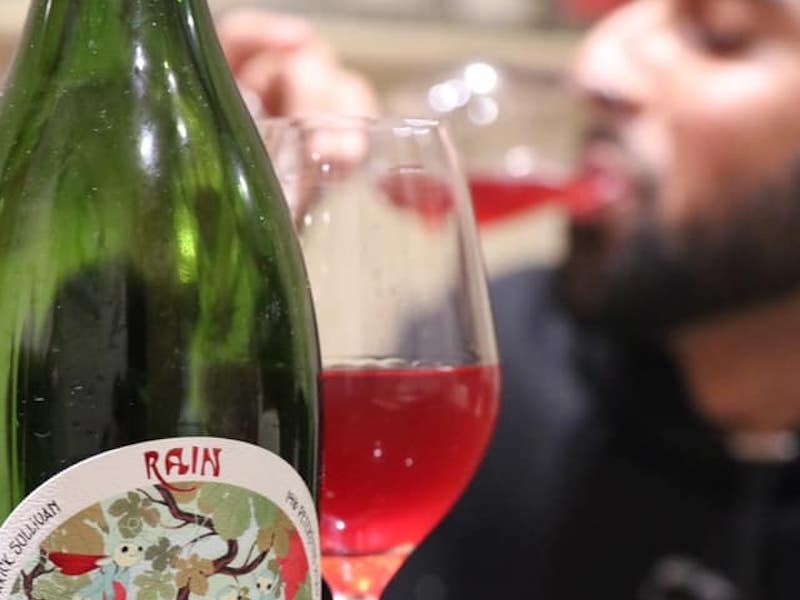
VIN DE BODEGA
Rick Farthing, Eoghan Neburago, Jack Surplus and Razz Ashraf are the four friends who launched this New York-influenced online bodega out of East Manchester. *Free city centre drop-offs on orders made before 2pm.
A Our business ethics echo the sense of community around a neighbourhood NY bodega. What goes on in the world of natural wine is compelling. It’s a community of like-minded people that prides itself on complete transparency from the organic (or biodynamic) soils in which these grapes grow, all the way through to the final glass you probably have in your hand right now. The hand-picked selection on our shelves is kept small because that’s exactly how we want it.
B We believe that the battle to make natural wine a natural consumer choice has not yet been won, but are certain that we, alongside the multiple other natural wine related businesses here in Manchester, have made a massive difference. We're not looking to force the matter of natural wine on anyone but instead would like to educate the mainstream public through social media and events.
C An entry-level natural wine that's currently on our list would have to be Frei Korper Kultur Weiss 1 Ltr (£22.99) by Daniel and Bianca Schmitt. It’s from the Rheinhessen region of Germany and is a blend of five different organically grown grapes – Scheurebe, Pinot Blanc, Huxelrebe, Pinot Gris, and Ortega. It’s a fruity orange wine. Just 12.5%, so it is manageable by the litre.
D The high-end option we're currently offering is called Waterskin Blend (£40), produced by Patrick Sullivan, a young natural winemaker in Gippsland, Victoria. It is a certified premium skin-contact/orange wine with undeniable peachy, Caramelo scents, smacking your face almost instantly after opening. Flavours are passion fruit-inspired, electric and ridiculously smooth.
E The type of wine we've found challenging, yet enjoyable to convert our customers to, would definitely be orange/skin-contact wine. The constant battles between finding a really nice, high-quality orange wine and a crap one have been quite something. A lot of new natural wine drinkers out there may have drunk a cider-like, poor quality orange wine. At our events, we've swayed a few customers back onside to team orange wine and it’s gratifying.
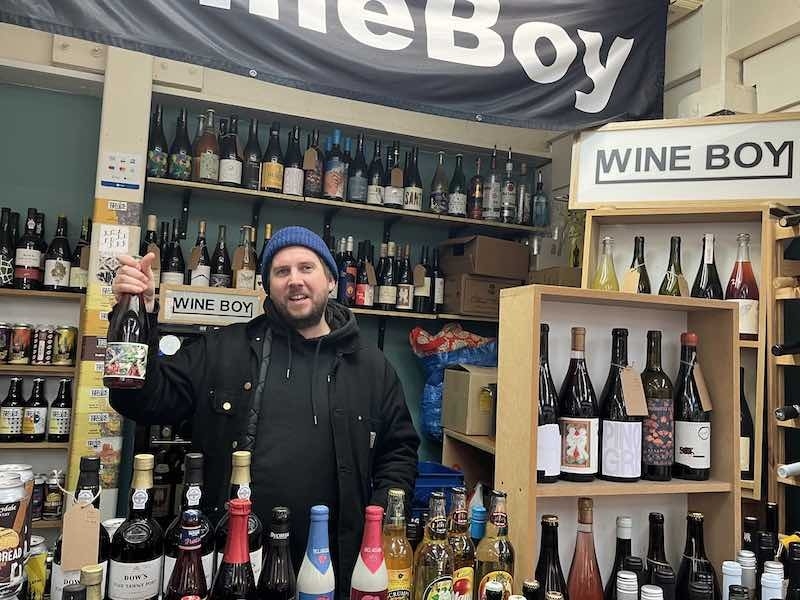
WINE BOY UK, STOCKPORT
Mark Gough is to be found Thursday to Saturday (9.30am-4.30pm) each week at his stall on Stockport Market. A very approachable way into natural wine. DM Mark for home delivery.
A It all started for me back in 2016. I purchased a mixture of bin-ends off a Manchester wine importer and while researching them became aware of a movement known as "natural wine". Back then there seemed to be some confusion and conflicting views over what the term actually meant. However, the idea of organic farming and minimal use of chemicals was highly appealing. The research was exciting. The amount of variation in the character from one low intervention wine to another was outstanding compared to the wine I had been accustomed to. However, there were consistency problems, which created retail challenges for retail. That has improved massively over the last five years.
B The younger generation are generally more aware of what they are consuming. This has driven the demand for natural wine. However, I have many customers over the age of 30 all the way up to people in their eighties. A big selling point is the reduction in hangovers from natural wine compared to mass-produced. An overriding issue is price. Most of us can't afford to blast £20 on our midweek table wine. As the supply catches up to the demand, hopefully we will start to see a reduction in the average price.
C For me entry level should be under £10, which makes it tricky because there aren't many. Maybe try La Patagua Semillon Moscatel (£9.50 -10% off if you buy a case of six). Fresh and light, a bit hazy in the glass. Great value.
D Staffelter Hof – 2020 Kiss Kiss Maddies’ Lips Pet Nat (£28). Like the name (and label) this natural sparkler is a bit wild, great red fruit flavours, dry finish and not too many bubbles (just how I like it!).
E Grolleau. I've stocked a couple recently, one still and one pet nat (£20 and £28 respectively). Really enjoyed both and very positive feedback. A lighter red varietal. I assume it's a relative of Gamay but I've been wrong before.
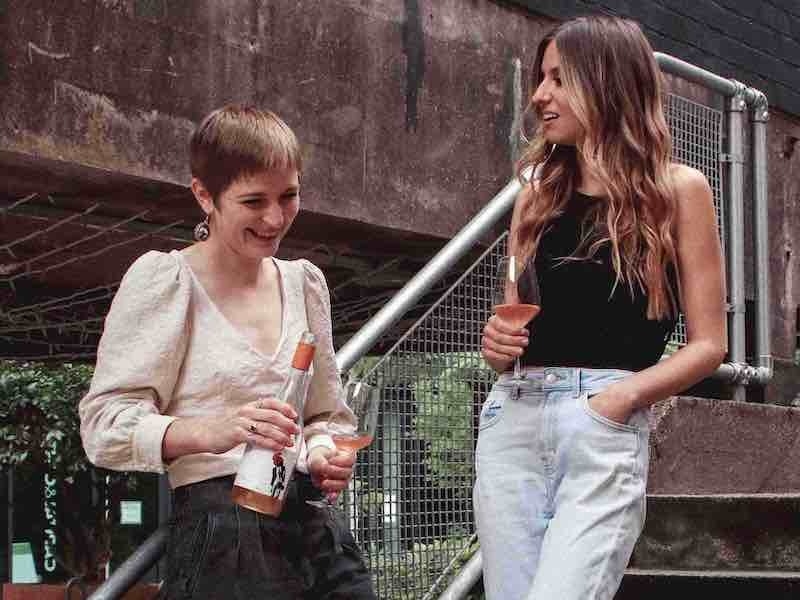
SUPPHER, MANCHESTER
Kimberly McBride’s CV includes Mary-Ellen McTague’s Aumbry and Erst. Since then she has run pop-up wine shop Garrigue, now on hold as she ramps up her innovative supper club, in collaboration with Erst sous chef Anna Søgaard while continuing to champion the natural wines she thinks work. There’s a wine shop on the website.
A I was introduced to low-intervention at the start of my wine journey. When I was working at Aumbry restaurant we had some wines on the list by Meinklang, who farm biodynamically and sustainably. I think my initial reaction was: I didn't know wines could not be "natural". Of course, I want to drink wine that is made sustainably and without any added chemicals. As I learned more about wine, working at Oddbins and more recently in restaurants, I realised that it isn't as simple as that. Sometimes chemicals need to be used on a vineyard to save a whole year's worth of work!
Now I’m looking for new flavours and interesting stories but always well-made wines, with as little intervention as possible. That is what I brought to Garrigue and now to Suppher. Sustainability and innovation fit in perfectly with our ethos – we are a supper club and online shop powered by women. We collaborate with talented women to raise money for charities that we believe in.
B I think that there is a lot of hype around natural wine and it is still an area for debate amongst wine-lovers. A lot of wine-geeks that I know say they don't like natural wine and I think that's because there is no way to classify a natural wine; it is basically a made-up category. Maybe with the new classification of Vin Mèthode Nature in France, natural wine will be easier to define and in that case easier to sell.
C Meinklang Prosa Frizzante NV (£16) – yes, I still love Meinklang wines nearly 10 years later. Lightly sparkling Pinot Noir from Burgenland in Austria. It is a really fresh and vibrant rosé with loads of tart redcurrant acidity. Dangerously easy drinking.
D Alain Mathias Petit Chablis 2018 (£28). For those who don't like minimal intervention wines. This is biodynamic and organic. An extremely elegant Petit Chablis from Jurassic limestone soils. It has beautiful texture, rhubarb notes and a hint of cream.
E Bodega Cauzon Blanco 2020 (£26) is a skin-contact blend from Granada. It has that green and red apple tart-ness that you find with a lot of skin-contact wines and some people struggle to get on board with that. This is dead elegant though, with loads of pithy grapefruit flavours and perfectly balanced fruit and acidity. *Delivery across Manchester, free on orders over £50.
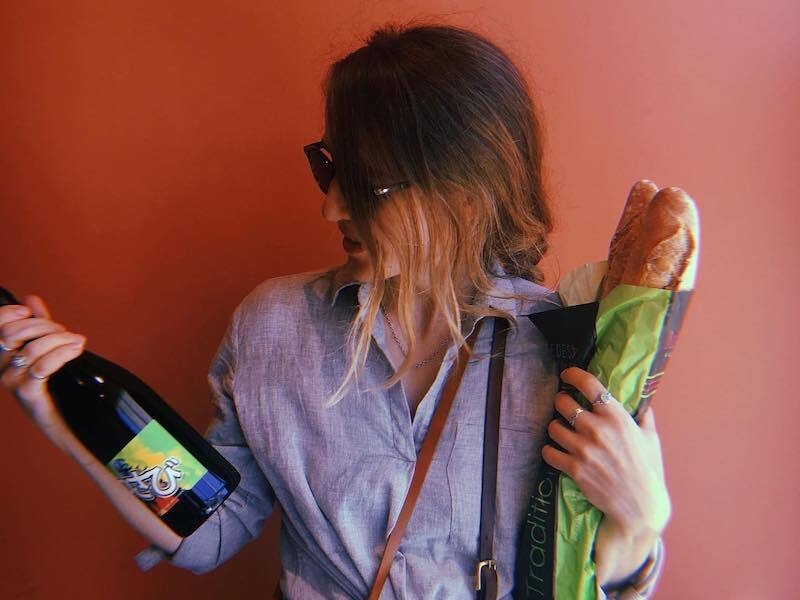
IT’S ALIVE
Alongside making films, Tami Doncic and Jamie Haighety specialise in natural, biodynamic and organic wines, plus mixed fermentation beers such as lambics, and fermented foods. Their base is in Rossendale. You may chance upon Serbian Tami promoting minimal intervention wine on a Saturday on Rawtenstall Market, but the bulk of their trade is online.
A Our interest in wine has always stemmed from a love of the craft, process and stories involved in winemaking. We don’t come from a traditional wine background, so our beginnings came from a place of passion, storytelling and research. We love that there is no one "proper" way to make wine and the process and philosophy behind every bottle is crafted by all of the different factors – the area, the grapes, and the winemakers themselves. We spent a long time travelling, meeting winemakers and visiting vineyards, helping make wines, often in lesser-known areas.
B We don’t believe it’s either of the two. We wouldn’t necessarily say it’s a “millennial” niche thing, more a choice of the winemaker and consumer for wine that is sustainable, vegan, small batch, artisanal, different, etcetera. In the UK, it’s easy to forget just how most people’s exposure to wine has been via the big four supermarkets. This has created a set of consumer expectations and therefore a bottle of low intervention wine, which is costed fairly – and tastes nothing like the consistent Malbec or Shiraz at £5-£7 – is seen as something mad or not good value.
C Anything by Meinklang. They’re biodynamic, extremely well made, fun, easy-drinking and a great intro to something a little different. Their orange Weißer Mulatschak is a winner (but Tami’s forever fave is the red Roter Mulatschak).
D Definitely wines from Bojan Baša. He is an incredible winemaker from Serbia currently producing only amber wines. They are something special and we’ll be importing his wines to the UK.
E Still a mystery to the average consumer are orange, amber, skin contact wines – whatever you want to call them, newcomers can be intimidated by some of the tasting notes but these wines are definitely being talked about more and more.
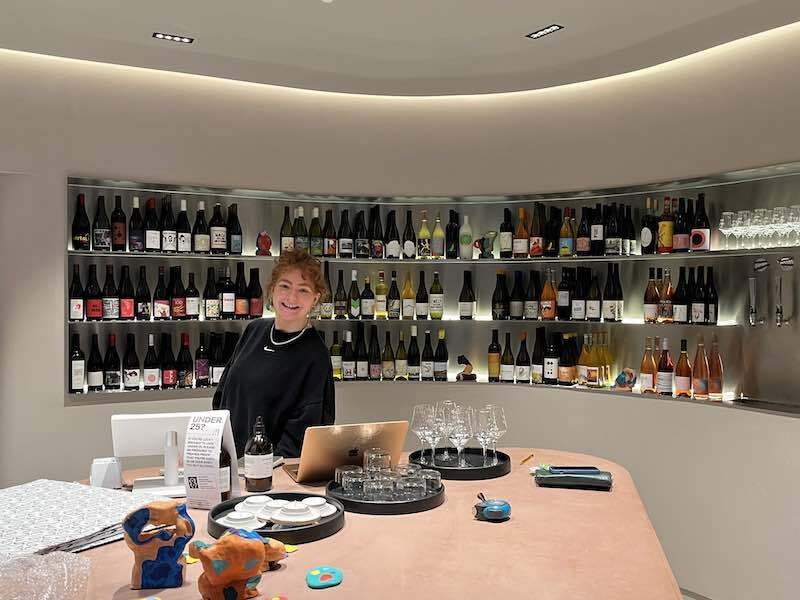
KERB, ANCOATS
David McCall and Phillip Hannaway launched this Instagrammable portal into the world of natural wine in Henry Street, currently the buzziest stretch of Ancoats. Head of wine is Daniel Waite. *£12 corkage charge for drinking in.
A DW: I first tried natural wine whilst working for Reserve Wines at a staff training session. It was Thirst by Radford Dale and it immediately got my attention. A chilled red that was light, juicy and tasted of cranberries and was a genuine thirst quencher. That was my epiphany moment.
PH: The first natural wine I tasted was in America – an extremely funky orange wine, and was intrigued, it was unlike any wine I had tasted, more akin to a natural cider. Back in the UK, I discovered the commitment of small natural wine producers, all passionate about the land and natural growing process and I was hooked.
B DW: It’s ongoing but the wheels have been greased and are fully in motion now. One of the positives to come out of lockdown is that people started to spend more money on quality food and drink to enjoy at home. They can stay in and spend £20+ on a really good bottle of wine and cook for themselves and have an amazing experience they could never capture in a restaurant. Millennial niche choice? I’d draw upon the parallel of craft beer taking over.
PH: I think it's been won. It’s not hampered by the traditional wine scene which often seems exclusive. The experimental nature of natural wine appeals to a certain type of person.
C El Marciano, Alfredo Maestro (£19). A great gateway wine for people who like their fruity medium to full-bodied reds. This Garnacha from the Ribera del Duero is rustic and packed full of dark fruit flavours and spice whilst still being really drinkable.
D Orange Utan, Staffelter Hof (£40). An orange wine that’s a zesty and aromatic bomb made from Riesling and Muscat. Full of spices, citrus fruits, and flowers that mingle with a mouthwatering acidity and serious drinkability. This is top tier orange wine.
E Vino Vdovjak, Dark Side of The Moon (£28) is a white wine from Slovakia that’s unusual because it was macerated overnight with 50 per cent botrytis grapes (partially raisined grapes that normally make sweet wines). It smells like caramel, peaches, sweet spices and vanilla but with lots of pleasing acidity. A really unusual but great wine.
Read next: Funky town: Manchester natural wine shops on what to buy (part 1)
Read again: What is natural wine - learn from Manchester's wine buffs
Get the latest news to your inbox
Get the latest food & drink news and exclusive offers by email by signing up to our mailing list. This is one of the ways that Confidentials remains free to our readers and by signing up you help support our high quality, impartial and knowledgable writers. Thank you!






